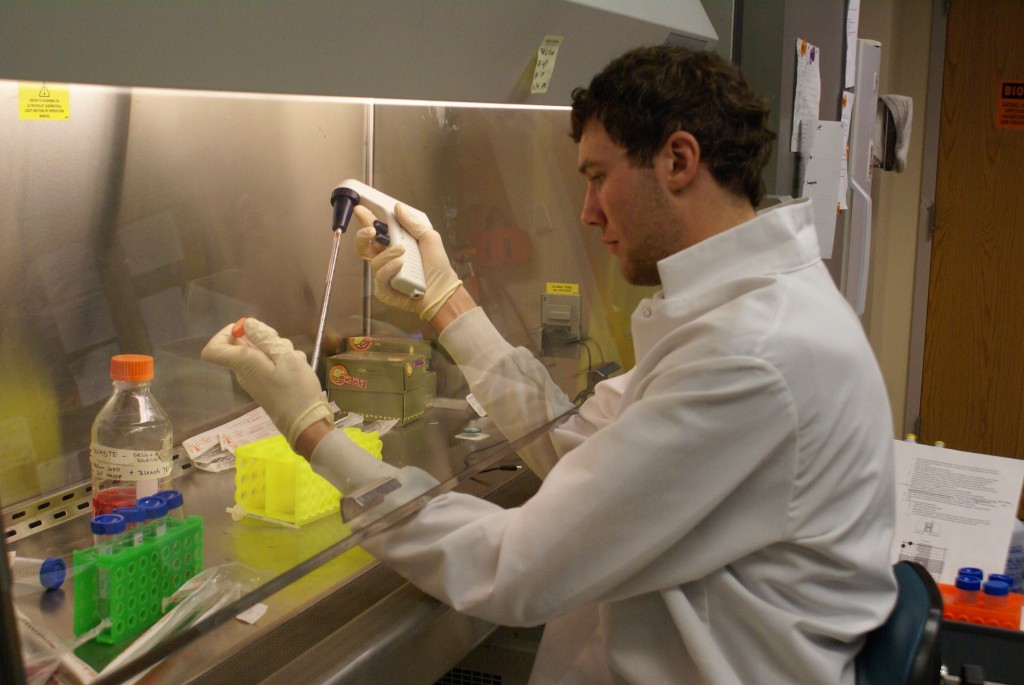
While summer means the end of classes for some St. Thomas students, others have the opportunity to apply what they have learned during the school year to research.
Junior Tim O’Connor is one of several students conducting research with grant money that allows such academic work without worries about finding a summer job. In O’Connor’s case, the Young Scholars Grant is providing $4,000 and free on-campus housing while he works.
O’Connor’s study will examine the benefits of farmers markets here in the Twin Cities. He must spend more than 40 hours a week studying and working in local farmers markets.
“We’re looking not only from an economic, but a socioeconomic perspective,” O’Connor said.
With the help of economics professor Jim Vincent, O’Connor hopes his findings will support future government subsidies for farmers markets.
Growing up and working on a blueberry farm inspired O’Connor to pursue the research. His parents opened the Blueberry Fields of Stillwater farm seven years ago. During the peak season, the farm is open for the public to pick blueberries. When the supply of ripe berries is smaller, O’Connor’s family relies on the nearby farmers market as a place to sell their harvest.
“The subsequent growth of farmers markets has really helped our family business,” O’Connor said, “I’ll be going home and working on the blueberry farm on the weekends, but this is my main focus this summer.”
The biology department also has other summer-research projects. Juniors Tyler Firkus and Betsy Smith both have personal projects they hope will be helpful to the community.
Firkus is working on a study that looks at the estrogen levels leaving multiple water treatment plants along the St. Croix River. He said endocrine disruptors tamper with hormones and may have adverse effects on fish populations and potentially on humans as well.
Regular household products, including some hand soaps, contain estrogen, he said.
“Basically, we’re looking for things that may be endocrine disruptors,” Firkus said.
Smith’s neuroscience study focuses on addictions. Specifically she is looking at gene expressions in the frontal cortex of adolescent rats. Gene expression is the process by which information from a gene makes a product such as protein. By isolating these gene expressions, she hopes she will be able to manipulate different proteins to hinder addictive behavior. Smith said she is confident about the project because of her mentor, assistant biology professor Kurt Illig.
“We had a conversation, and he gave me some ideas … it’s my project, but it was definitely a collaboration to see what is best for the lab,” Smith said.
Professor Illig is also excited to collaborate with students in the lab.
“I view working with students as one of the most important things I do,” Illig said. “In fact, the opportunity to engage undergraduate students in the scientific process is one of the primary reasons I chose to come to St. Thomas.”
Illig said that by learning more about the topic and using newfound laboratory skills, students understand what it means to be a scientist.
“The benefit is in the work,” Illig said.
Alex Goering can be reached at goer8777@stthomas.edu.

